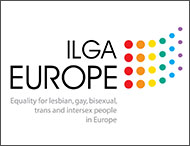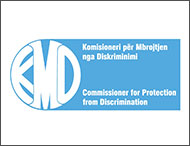ANNUAL REVIEW OF THE HUMAN RIGHTS SITUATION OF LESBIAN, GAY, BISEXUAL, TRANS AND INTERSEX PEOPLE IN EUROPE AND CENTRAL ASIA 2022
- May 11, 2022
- crca-author
ALBANIA
ACCESS TO ADEQUATE FOOD
During this year of the COVID-19 pandemic, Aleanca LGBTI and Streha supported 300 LGBTI people with food; the PINK Embassy provided food and clothing to 30 trans people.
ACCESS TO GOODS AND SERVICES
In April, the Green Taxi company issued a public apology after their drivers refused to drive trans people, took disciplinary action against the employees, and pledged that the entire taxi fleet would display rainbow flags on IDAHOBIT. Three trans people were thrown out of a café in Tirana and complained to the Commsioner Against Discrimination. It took Aleanca almost a year to find a space for their community centre, having been turned down by several property owners, saying they did not want “faggots’ money”.
ASYLUM
Aleanca’s survey found that 79% of LGBTI respondents may leave Albania due to discrimination. Dozens of LGBTI people reached out to CSOs for support in seeking asylum in the EU, and many shared that their claims had been rejected.
BIAS-MOTIVATED SPEECH
The LGBTI community was under continuous attack from religious groups, media and public figures. In June, journalist Blerta Tafani made several homophobic statements on TV, saying that “it’s a great misfortune [that an LGBTIQ person] gives birth to a child”; that “life with two fathers doesn’t work, life with a gay family ends, this is offensive”; and that “an adopted child isn’t a healthy child”. In November, the founder of the Coalition for the Traditional Family, pastor Akil Pano organised an event in his church where Italian journalist Nausica Della Valle shared her experiences as a “former lesbian” who was “cured” by the Church. Aleanca decided to show up at the event, affirming their identity. Pano and Della Valle gave an interview on national TV saying “homosexuality” can be cured.
BIAS-MOTIVATED VIOLENCE
Due to the COVID-19 pandemic, many LGBTI people had to stay with unsafe families, exposed to harassment and violence. A trans person was assaulted by ten young men in Tirana in June. PINK launched a podcast on hate crime prevention in May.
EDUCATION
CSOs continued to experience difficulties working with the Ministry of Education and there has been no progress on including LGBTI rights issues into the curriculum. Aleanca has conducted a study on the issue. Aleanca’s study with LGBTI high school and university students found that 65% feel unsafe at school; 93% heard homophobic slurs in school very often and almost a third have skipped or changed schools due to bullying. PINK, Aleanca, and Streha supported the first openly trans person to attend university and was met with a welcoming attitude from teachers and students.
EQUALITY AND NON-DISCRIMINATION
The implementation of the previous National LGBTI Action Plan remained flawed, with only the Ministry of Health and Social Protection fulfilling their responsibilities and cooperating with CSOs. The Commisioner for Protection from Discrimination has also failed to take proactive steps against discrimination and violence. The new National LGBTI Action Plan (2021-2027) was adopted in November. PINK called for a coordination and monitoring body to oversee implementation, and the establishment of a Transgender Support Fund. PINK published a report on the human rights of LGBTI people in Albania in the past 10 years, critical of the lack of government action, particularly on trans rights.
Aleanca LGBTI published guidelines on the implementation of the SDGs with a focus on LGBTI people. Aleanca continued its cooperation with the municipalities of Tirana, Vlora, and Lezha to increase their capacity and help develop local LGBTI action plans. The municipality of Kukes withdrew due to the stance of the new mayor.
FAMILY
The Ministry of Justice launched a consultation regarding amendments to the Family Code and the Adoption Law. In June, the authorities refused to register two women, who are a same-sex couple, as parents of their two children. The case is now at the Administrative Court.
FREEDOM OF ASSEMBLY
Aleanca LGBTI held a flash mob on IDAHOT in May in Tirana. PINK held the annual Tirana Pride with 10 people due to COVID-19 restrictions, and displayed a 10-metre long rainbow flag.
FREEDOM OF EXPRESSION
Activists raised rainbow flags on several castles in Albania on IDAHOT.
HEALTH
Aleanca reports that the number of HIV infections doubled over the past year and services are lacking. PrEP and PEP continue to be unavailable to LGBTI people. Viral load tests are unavailable at public hospitals and private clinics remain unaffordable for most. Lastly, the National Strategy for People Living with HIV expired in 2020 and has not been renewed. Aleanca provided rapid HIV testing to 1131 people and medical support to 30 LGBTI people. Streha provided medical visits to 49 people and medication to 127.
HOUSING
A number of trans people reported that they were denied rentals due to their gender identity. Streha continued to provide shelter this year, to five trans people, nine gay men, and two lesbians; emergency shelter to five people; and rent payments to 33. Aleanca supported 15 LGBTI people with rent.
HUMAN RIGHTS DEFENDERS
Human rights defenders remained targets of hate. In June for instance, LGBTI activist Xheni Karaj’s social media accounts were targeted, when a TV reporter suggested that LGBTI people want to remove the word “mother”. During the same month, a trans activist was verbally and physically attacked. On 2 July, the European Parliament Intergroup on LGBTI Rights expressed concern about the attacks. The report “Community (self)organising of transgender movement in Western Balkans region” features a chapter on the trans movement in Albania.
INTERSECTIONALITY
Aleanca, Roma and disability rights organisations worked closely together, for instance by organising a theatre show and an exhibition on multiple discrimination. Trans women, Roma LGBTI people, and LGBTI with disabilities remain the most marginalised groups in the community.
LEGAL GENDER RECOGNITION
PINK consulted CSOs and authorities and prepared a draft LGR law, which it will present to the parliament in 2022.
PARTICIPATION IN PUBLIC, CULTURAL AND POLITICAL LIFE
The manual ‘Political Participation of LGBTI Persons: A Guide for Albanian Political Parties’ was published in February - the first of its kind in the country. None of the political parties running in the elections answered Aleanca’s questionnaire on LGBTI right issues, or include LGBTI issues in their programmes. Aleanca ran a social media campaign featuring photos and quotes from politicians who had used hate speech against LGBTI people. The Being Trans in Albania exhibition was launched in May, without incidents, and is now touring the country. Aleanca organised two theater shows, Zanafilla on interpretation of the bible from a queer perspective, and Bosh on the mental health of LGBTI people.
POLICE AND LAW ENFORCEMENT
In March, Aleanca LGBTI and Pro-LGBTI held a training for police officers on LGBTI issues. Civil society and the police launched an informative brochure on policing anti-LGBTI hate crimes. In September, Aleanca LGBTI co-organised a training with Dutch CSOs, for judges and prosecutors on handling antiLGBTI hate crime cases. PINK organised a consultation between the Chiefs of Police Stations in Tirana with the Commissioner for Protection from Discrimination and the Diversity Contact Point at the National Police Authority, to discuss better cooperation between LGBTI CSOs and the police, including through training and support. On 24 November, the Council of Europe in cooperation with the police and LGBTI NGOs held meetings about the rights of the LGBTI+ community with the police in Vlora, Gjirokastra, Korca, Elbasan, Kavaja, and Fier. LGBTI contact points were established in each town.
SOCIAL SECURITY AND SOCIAL PROTECTION
Streha received an award as a best practice example to end youth homelessness.
The full version of the report, you can find at:https://www.ilga-europe.org/sites/default/files/2022/full_annual_review.pdf














